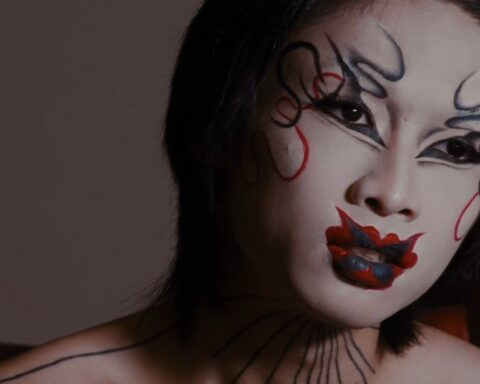Of Love & Law
(Japan, 97 min.)
Dir. Hikaru Toda
The Toronto Japanese Film Festival offers a timely selection for Pride Month with the documentary Of Love & Law. The film, which won top honours at the Tokyo and Hong Kong international film festivals, is director Hikaru Toda’s intimate portrait of everyday Japanese citizens fighting for equality in a conformist society. Of Love & Law tells the story of Masafumi Yoshida and Kazuyuki Minami, aka Fumi and Kazu, a gay couple in Osaka who are also professional partners operating the city’s first openly gay law firm. Their bravery is commendable as they live and work in a country with a homogenous population in which 98.5% of the citizens identify as ethnic Japanese. Human rights violations abound as the government and rule of law operate with archaic definitions of inclusions and exclusion. Toda’s film tells the story of two heroes fighting for change.
Of Love & Law illustrates the rigidity of Japanese culture when Toda opens the film with shots of Osaka’s Pride Parade. The footage has a clandestine aesthetic as she obscures the images of everyone present. The attendees don’t want their faces on camera, nor do they want to lend their stories for interviews. When the parade takes to the streets, the audio picks up all kinds of slurs and homophobic remarks. It’s not the clearest picture of a progressive society.
However, when Fumi and Kazu invite Toda into their home, her film offers a valuable look inside a healthy normal relationship. It’s a view of a world that the rest of Japan needs to see. Similarly, the couple uses the experience of their marginalization to empower their community by speaking about the challenges of coming out and fitting in with their workplace. (One co-worker describes learning of Fumi’s homosexuality and wondering if he was sick with something like the measles.) Through individual acts, they correct ignorance and inspire their community to grow.
While Toda could have easily made a worthwhile film about LGBTQ rights by looking only at Fumi and Kazu’s relationship, the film expands its scope to include a handful of clients engaged in human rights struggles with Japan’s narrow-minded judicial system. The film offers three cases with significant implications. These scenes appear infrequently during scenes of Fumi and Kazu’s professional and domestic lives, including their effort to apply for adoption.
Presented in the chapter “Child vs. State,” Of Love & Law observes Fumi and Kazu handling the cases of Anonymous A and Anonymous B, a Japanese woman and man denied any record of their existence because an antiquated law requires a person to be born within a traditional “family” to be registered as a citizen. Anonymous A and Anonymous B explains their cases, which tell of being born outside of wedlock as their parents escaped abusive relationships or were unable to divorce before having children with a new partner. Without documentation, Anonymous A, Anonymous B, and the 10,000 people like them, cannot pursue education, marry, or even drive a car.
The case “Teacher vs. Osaka” outlines a seemingly ludicrous lawsuit in which former teacher Hiroko Tsujitani sued the Osaka Board of Education after she was terminated for refusing to stand during the national anthem. Although Toda could have provided more context to this chapter of the film to better understand Tsujitani’s charge that the requirement to stand during the anthem violates her freedom of expression, the doc illustrates yet another Draconian element of Japanese law.
The third case, “Vagina vs. Police,” endears itself best to the queer cause of the documentary as Fumi and Kazu represent an artist, Rokudenashiko, who is charged with obscenity after she sells artwork that uses the mould of her vagina as the basis for a humorous display. Rokudenashiko is a colourful character and this chapter of the film best shows the legal ingenuity of the subjects as they challenge the double standards and moral policing of Japanese society.
Rokudenashik’s openness serves the film better, too, as Toda’s choice to respect the anonymity of the plaintiff’s in “Child vs. State” inevitably limits that chapter, while the doc all but forgets about poor Ms. Tsujitani shortly after introducing her case. Nevertheless, as Toda deftly connects the personal and the political, Of Love & Law illustrates the ongoing fight for human rights in some of the world’s most developed countries. As other nations see their cultural diversity as their strength and draw from the range of experiences and identities to move the country forward, the film suggests that Japan needs to reframe its view of the idealized citizen. Toda’s postscript about Fumi and Kazu’s family provides a welcome note of optimism.
Of Love & Law screens at the Toronto Japanese Film Festival on Saturday, June 15 at 4:00 pm at the Japanese Canadian Cultural Centre.












